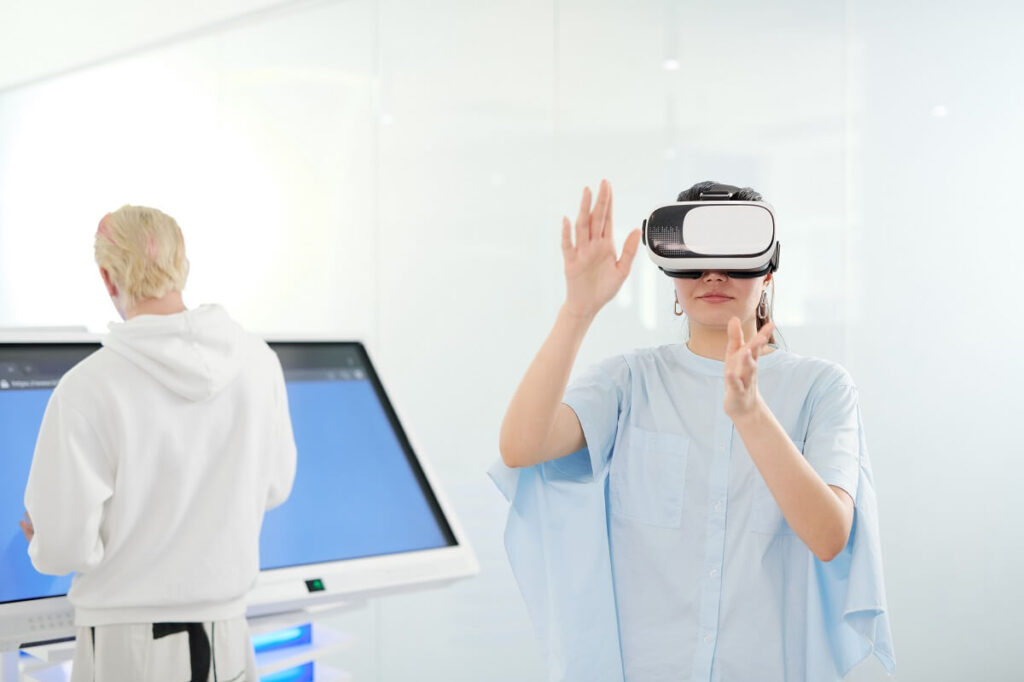Modern health technology is rapidly changing the way we approach healthcare. With the rise of digital health tools, telemedicine, and artificial intelligence, patients and healthcare providers alike are experiencing a revolution in the way we diagnose, treat, and prevent illness. In this article, we will explore how modern health technology is transforming healthcare and what it means for the future of medicine.
The Rise of Digital Health Tools
Digital health tools are becoming increasingly popular among patients who want to take control of their own health. These tools include mobile apps, wearable devices, and online portals that allow patients to track their health data, communicate with their healthcare providers, and manage their own care. For example, patients can use wearable devices to track their physical activity, heart rate, and sleep patterns, which can help them make informed decisions about their health and wellness. Online portals also allow patients to access their medical records and communicate with their healthcare providers, making it easier to stay on top of their care.
Telemedicine
Telemedicine, or remote healthcare, is another modern health technology that is changing the way we approach healthcare. With telemedicine, patients can receive medical care from anywhere, without having to visit a doctor’s office or hospital. This can be especially helpful for patients who live in rural or remote areas, or who have difficulty traveling to appointments. Telemedicine can also save time and money, as patients don’t have to take time off work or pay for transportation to appointments. Many healthcare providers are now offering telemedicine services, which can include video consultations, remote monitoring, and online symptom checkers.
Artificial Intelligence
Artificial intelligence (AI) is also revolutionizing healthcare by providing faster, more accurate diagnoses and treatment plans. AI algorithms can analyze vast amounts of medical data, including patient records, medical images, and clinical trials, to identify patterns and predict outcomes. This can help healthcare providers make more informed decisions about patient care and treatment options. For example, AI algorithms can help radiologists detect cancerous tumors in medical images with greater accuracy, and can help oncologists develop personalized treatment plans based on a patient’s unique genetic profile.
The Future of Healthcare
As modern health technology continues to evolve, we can expect to see even more changes in the healthcare industry. Some experts predict that healthcare will become more personalized, with patients receiving tailored treatment plans based on their unique health data. Others predict that AI will become even more sophisticated, eventually taking on more complex medical tasks such as surgery and diagnosis. Whatever the future holds, it’s clear that modern health technology is already transforming the way we approach healthcare, and that it has the potential to improve outcomes and save lives.
Conclusion
Modern health technology is revolutionizing healthcare by providing patients with greater control over their own health, improving access to care, and providing healthcare providers with faster, more accurate diagnoses and treatment options. With the rise of digital health tools, telemedicine, and artificial intelligence, we can expect to see even more changes in the healthcare industry in the years to come. By embracing these technologies and continuing to innovate, we can create a healthier, happier future for all.
FAQs
What are some examples of digital health tools?
Digital health tools include mobile apps, wearable devices, and online portals that allow patients to track their health data, communicate with their healthcare providers, and manage their own care.
What is telemedicine?
Telemedicine, or remote healthcare, allows patients to receive medical care from anywhere, without having to visit a doctor’s office or hospital. This can include video consultations, remote monitoring, and online symptom checkers.
How is AI being used in healthcare?
AI algorithms can analyze vast amounts of medical data, including patient records, medical images, and clinical trials, to identify patterns and predict outcomes. This can help healthcare providers make more
As mentioned earlier, modern health technology is revolutionizing healthcare. One of the key ways it is doing this is through telemedicine. Telemedicine refers to the use of technology to provide healthcare services remotely. It includes things like video consultations, remote monitoring, and electronic prescriptions. The pandemic has highlighted the importance of telemedicine, as it has allowed people to access healthcare services without having to leave their homes.
Another way that modern health technology is revolutionizing healthcare is through wearable technology. Wearable technology includes devices such as fitness trackers, smartwatches, and health monitors. These devices allow individuals to track their health metrics, such as heart rate, sleep patterns, and physical activity, and provide insights that can help them make healthier choices. They can also help individuals manage chronic conditions by providing early warning signs and allowing for early intervention.
Artificial intelligence (AI) is also playing a major role in modern health technology. AI has the potential to improve the accuracy and speed of medical diagnoses and treatment plans. Machine learning algorithms can analyze large amounts of medical data to identify patterns and make predictions. This can help healthcare providers make more informed decisions and improve patient outcomes. AI is also being used in drug discovery, helping to identify new treatments and therapies more quickly and efficiently.
Finally, modern health technology is also improving the patient experience. Electronic health records (EHRs) are replacing paper-based medical records, providing healthcare providers with instant access to patient information. This can lead to faster diagnoses, more effective treatment plans, and better patient outcomes. EHRs also improve communication between healthcare providers, making it easier for them to collaborate on patient care.
In conclusion, modern health technology is revolutionizing healthcare in many ways. It is improving the speed, accuracy, and efficiency of healthcare services, and making healthcare more accessible and convenient for patients. As technology continues to advance, we can expect to see even more innovative solutions to healthcare challenges, ultimately leading to a happier, healthier population.


